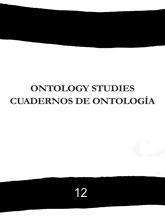Pluralidad de la filosofía : pluriversidad versus universidad
Article Sidebar

Main Article Content
Javier Echeverria
Universidad del País Vasco. Departamento de Sociología 2
The condition distributed in space and in time of the philosophy (desire of wisdom) does not imply universality, but rather plurality, and even pluriversality. Universality implies a tendency to “the One”, which since Plato has been conceived as a transcendent entity. The plurality advocated in this contribution, inspired by Leibniz and James, states adversus unum, not versus unum. Consequently, it advocates a pluriversal philosophy, which explores and afirms the plurality in each of the areas investigated. The monotheistic substrate of universality in the scholastic logic is also remarked. Facing the logical-deductive monism, which afirms the existence of a single mode of rationality, this paper claims for a pluralistic rationality, in contrast to the monist rationality. Finally, it is suggested that the very idea of the university could be advantageously replaced by institutions based on multidisciplinary and plurality of perspectives of analysis: pluriversities.
Article Details
Com citar
Echeverria, Javier. “Pluralidad de la filosofía : pluriversidad versus universidad”. Ontology studies, no. 12, pp. 373-88, https://raco.cat/index.php/Ontology/article/view/276180.
Articles més llegits del mateix autor/a
- Javier Echeverría, Cavernas virtuales y cavernas reales , Ontology studies: 2008: Núm.: 8